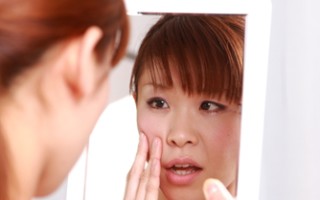
Whether you struggling with acne, eczema, psoriasis or other skin conditions, the battle for clear skin is never over. Having healthy skin is not only important to your body's wellbeing, but it makes you feel more confident and ready to tackle whatever life throws your way. If you are tired of letting your skin hold you back from doing what you love, you might want to learn more about how your diet could be affecting your skin's health.
What does my diet have to do with my skin?
Aristotle famously stated "The whole is greater than the sum of its parts." This couldn't be more true for your body. Every organ, nerve, and cell work together to ensure your mind and body are healthy and optimally functioning. There is no exception to your skin, which is the body's largest organ. It plays a key role in detoxification, regulating blood temperature, synthesizing Vitamin D, and protecting our insides from external elements, such as toxins and bacteria. While numerous factors, such has hygiene, lifestyle and genetics all contribute to the quality of your skin, many experts and epidemiological research now suggests a clear connection between your gut and your skin.
A well-balanced diet consisting of essential fatty acids, vitamins, minerals, and beneficial bacteria through fermented foods/probiotics are key to keeping your skin healthy and happy. The health of your skin is intricately linked to your liver, which is responsible for conjugating and removing toxins, so just as important to what you put in your body is what you keep out of it. When the liver becomes too congested, the skin can become an avenue for toxins to be released, causing inflammation. According to Food Renegade, "The biggest dietary culprits [for liver problems] include caffeine, alcohol, sugar, food additives, and excessive intake of Omega 6 essential fatty acids. But, there are environmental culprits too: pesticides, herbicides, synthetic chemical fertilizers, and even doctor-prescribed medicines."

GAPS Diet and skin conditions
Chronic inflammation in the gut wall and an imbalance of beneficial bacterial diversity throughout the GI tract may lead to severe digestive dysfunction and leaky gut. Leaky gut syndrome can lead to serious health issues, including autoimmune skin disorders. Progressive Health writes that in a 2008 study released in the journal, Clinical and Molecular Allergy, researchers discovered that reduced gut microbial diversity in the body is a serious risk factor for developing eczema at a young age.
Another study published in The Journal of Allergy and Clinical Immunology suggested that regular probiotic intake had beneficial affects for reducing the risk and symptoms of eczema and other skin-related conditions. The GAPS Diet focuses on rebalancing gut flora by increasing the consumption of probiotics through fermented foods and supplements. In addition, foods that are difficult to digest and detrimental to the gut lining are removed, specifically grains and commercial dairy products. According to University of Maryland Medical Center, there is a strong link between autoimmune skin conditions like eczema and food sensitivities/allergies.
It is also important to remember that everything you put on your skin gets absorbed and can alter the natural pH of the skin. Soap, for example, can trip the delicate acid mantel due to its alkalinity. Dr. Campbell-McBride recommends using only natural products to ease skin inflammation such as seaweed pastes, raw honey, fresh herbs, and soak in Epsom salt baths. She also recommends drinking fresh pressed carrot juice daily, responsible sun bathing, and swimming in natural waters. In addition, supplementing with zinc, vitamin D, taurine, and seaweed may also be beneficial.
For additional information about the GAPS Diet and how to get started, you can consult with a Certified GAPS Practitioner and visit our website today!

